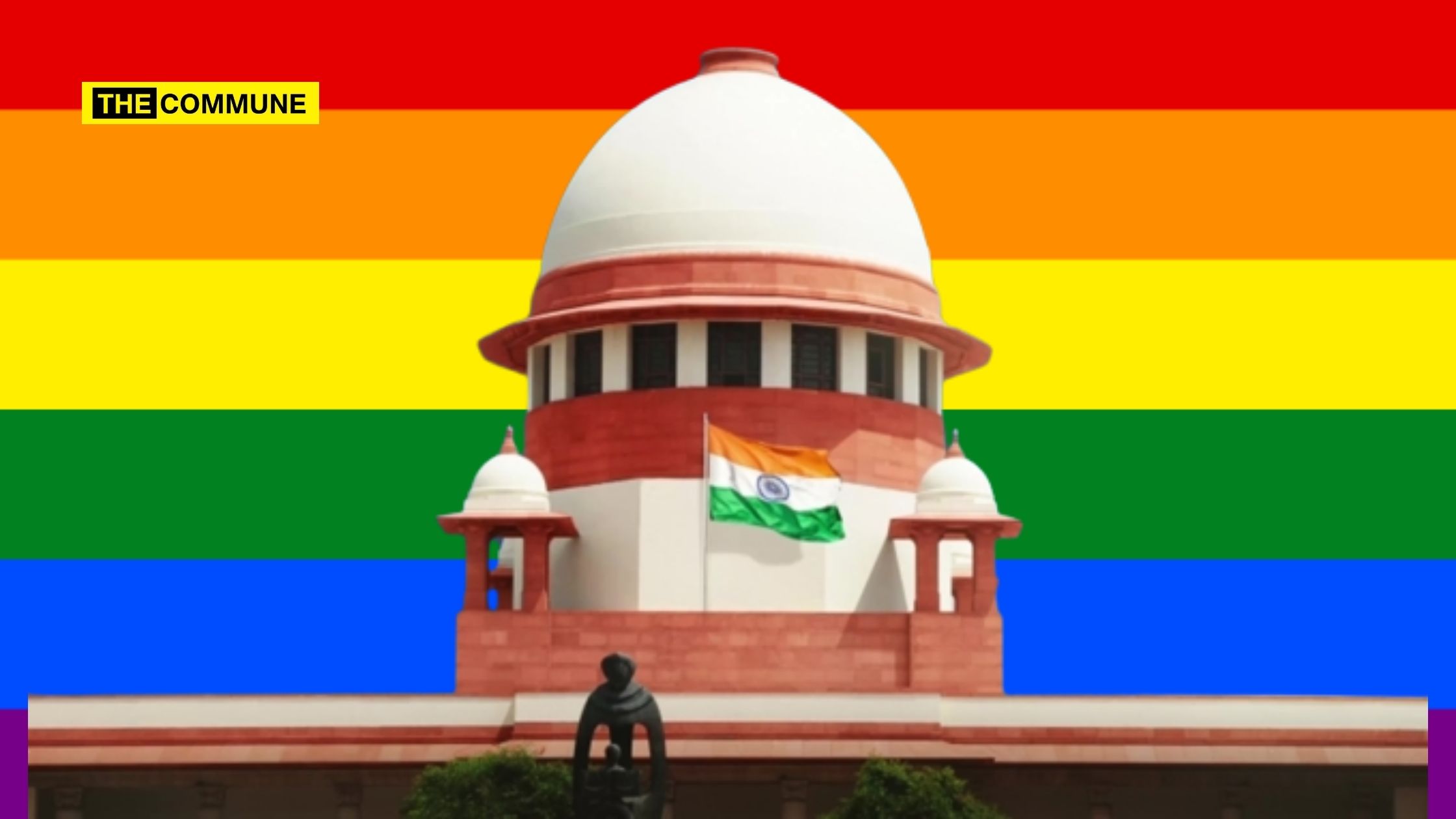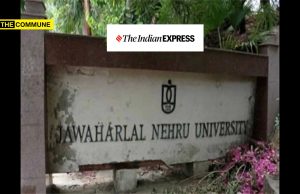
The Supreme Court of India on Tuesday, 17 October 2023, gave two very important verdicts on same-sex marriage and allowing queer couples to adopt children. The apex court bench of Chief Justice DY Chandrachud, Justices Sanjay Kishan Kaul, S Ravindra Bhat, Hima Kohli, and PS Narasimha, have refused to recognise same-sex marriage as legal in India in a 5-0 verdict.
#WATCH | "I welcome the decision of the Supreme Court where they have not allowed same-sex marriage," says Supreme Court Bar Association president Adish Aggarwala. pic.twitter.com/7yHPeImcvz
— ANI (@ANI) October 17, 2023
When it came to the right to jointly adopt a child by queer couple Chief Justice of India DY Chandrachud justices SK Kaul favored it, but Justices Ravindra Bhat, Hima Kohli, and PS Narasimha opposed adoption rights in a 3-2 verdict.
#LGBTQIA: Supreme Court in 3:2 Vedict Denies Adoption Rights For Queer Couples#cjidychandrachud, Justic SK Kaul favoured, but Justices Ravindra Bhat, Hima Kohli and PS Narasimha opposed adoption rights.#SupremeCourt pic.twitter.com/qp7sl03Xhd
— Mirror Now (@MirrorNow) October 17, 2023
It was expressed as a viewpoint that there was no inherent constitutional or fundamental entitlement to civil unions. The matter was delegated to the discretion of the Parliament and State legislatures to determine if same-sex marriage should be legally recognised and to create relevant legislation for it.
The highest court also declined to invalidate the Special Marriage Act and Foreign Marriage Act due to their lack of recognition for same-sex marriages. Instead, the court acknowledged the Union’s commitment to forming a Committee that will assess the rights and advantages that can be extended to same-sex couples.
Chief Justice Dhananjaya Yeshwant Chandrachud emphasised that it was not within the court’s authority to address this matter and suggested that the responsibility of creating marriage-related laws should fall on the parliament. Cheif Justice Chandrachud said, “The court, in the exercise of the power of judicial review, must steer clear of matters, particularly those impinging on policy, which fall in the legislative domain.”
The CJI who is a liberal by any standard was of the opinion that the court cannot make law, it can only interpret it. “It’s the Parliament’s decision if it wants to bring about a change in the Special Marriage Act. The court has not gone into any other laws except the Special Marriage Act,” he said, adding that the SC can’t hold the Special Marriage Act unconstitutional just because it doesn’t recognize same-sex marriages. Also, it cannot compel Parliament or state assemblies to create a new institution of marriage.
At the same time, the five-judge bench differed on the applicability of adoption rules for non-heterosexual couples. The CJI, DY Chandrachud, while reading out the verdict on same-sex marriage, said that the Central Adoption Resource Authority (CARA) circular, which denies adoption rights to queer couples, is “violative of Article 15 of the Constitution”.
“CARA Regulation 5(3) indirectly discriminates against atypical unions. A queer person can adopt only in an individual capacity. This has the effect of reinforcing the discrimination against the queer community,” he said, adding, “There is no material on record to prove that only a married heterosexual couple can provide stability to a child.”
This verdict now puts the onus on the parliament and the elected representatives to make laws that may or may not allow same-sex marriage and may or may not allow queer couples to adopt children.
While delivering the verdict, the Chief Justice of India instructed the Union, state governments, and Union Territories to eliminate discrimination against the LGBTQ+ community. He emphasized that the government should raise public awareness about LGBTQ+ rights, establish a dedicated hotline for the LGBTQ+ community, and set up safe shelters (garima grihas) for their protection. Furthermore, he stressed the importance of preventing intersex children from being compelled into sex reassignment surgeries.
The Chief Justice also underscored that law enforcement should refrain from subjecting LGBTQ+ individuals to unwarranted questioning at police stations regarding their identity. They should not pressure LGBTQ+ individuals to return to their families against their will. Additionally, a preliminary inquiry should be conducted before filing a First Information Report (FIR) against a same-sex couple in relation to their relationship.
The verdict against same-sex marriage has brought disappointment for the petitioners who had argued that, “India is a marriage-based culture” and that LGBTQIA+ couples should be granted the same rights as any heterosexual couples have, like the status of “spouse” in finance and insurance issues; medial, inheritance, and succession decisions, and even in adoption and surrogacy matters.
It must be noted that the central government had expressed its opposition to the petitions filed in favor of same-sex marriage. In its affidavit, the government contested the request for the legal acknowledgment of same-sex marriage, asserting that the cohabitation of same-sex individuals, which is no longer criminalized, is distinct from the traditional Indian family structure. The government argued that these are clearly separate categories and should not be treated as equivalent.
The Center submitted the affidavit to counter the demands made by various petitioners who sought legal recognition of same-sex marriage. The government’s position was to reject these requests, citing a lack of merit in the petitions. On April 18, the Central Government issued a letter to the States, soliciting their input on matters related to same-sex marriage.
States such as Assam, Andhra Pradesh, and Rajasthan have expressed opposition to legally recognizing same-sex marriages in the country, while Maharashtra, Uttar Pradesh, Manipur, and Sikkim have requested additional time to provide their opinions on the issue of same-sex marriage.




